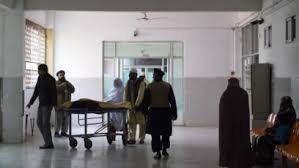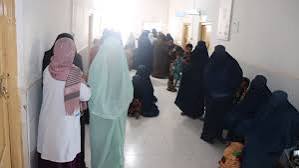Increasing problems in the health services sector in Afghanistan have added to the concerns
Yes, increasing problems in the health services sector in Afghanistan have added to serious concerns. Several crises in this country, including war, poverty, lack of resources, and political instability, have caused the Afghan healthcare system to face many challenges.
In recent years, due to conflicts, sanctions and the withdrawal of international aid, many hospitals and medical centers in different regions of the country have either been closed, or are unable to provide proper services due to the lack of medical equipment and staff. This situation has caused an increase in mortality due to treatable diseases and health problems.
In addition, economic crises and increasing poverty have made it more difficult for many people to access health services. Women and children are especially vulnerable and many of them are deprived of basic health services.
In this situation, the strengthening and development of the health and treatment system in Afghanistan requires international cooperation and financial and human support in order to reduce the existing health problems and provide better services to the people.
The unfortunate situation of providing health services in Afghanistan
The unfortunate situation of providing health services in Afghanistan is one of the serious challenges of this country, which has severely affected people’s health and has caused widespread concerns inside and outside of Afghanistan. These problems have arisen for various reasons, including political, economic, security, and social crises, and have become more intense in recent years.
- Lack of financial resources and medical equipment:
One of the biggest problems in Afghanistan’s healthcare sector is the lack of financial resources and medical equipment. After the Taliban took over Afghanistan in 2021 and reduced international aid, many hospitals and medical centers faced severe financial crises. International organizations that used to provide medical and therapeutic services stopped or limited their activities due to political changes and sanctions. This has caused a sharp decrease in people’s access to healthcare services.
- Lack of medical staff and specialists:
Afghanistan is facing a severe shortage of medical staff and specialists in various health fields. Many doctors and medical staff have left the country after the Taliban took over or are unable to continue working due to the difficult conditions inside the country. This shortage is particularly evident in rural and remote areas, where even access to a general practitioner is difficult. In many areas, people have to travel to medical centers in big cities for basic treatment, which takes a lot of time and money.
- Deprivation of health services for women and girls:
Due to the Taliban’s strict policies, many women and girls have been denied access to healthcare services. Many hospitals and women’s health centers have been closed or severely restricted. This situation has caused many problems, especially during pregnancy, childbirth, and women’s health problems. Also, women face serious barriers to receiving medical treatment, as many health services are provided by male doctors and are difficult for women to access.
- Increase in diseases and drug shortage:
Communicable and non-communicable diseases are increasing in Afghanistan. Among the diseases that have spread in recent years, we can mention respiratory diseases, malaria, diphtheria, and health problems caused by malnutrition. At the same time, the lack of medicine and medical equipment has made even basic treatments for these diseases impossible in many areas. Many people are facing serious problems to get essential medicines and sometimes they have to take fake or invalid medicines which can bring many risks.
- Crisis in the mental health system:
Mental health issues in Afghanistan have also been severely neglected. Wars, political crises, poverty and social instability have fueled the rise of mental disorders in people, especially among children, women and people affected by war. However, access to mental health and psychiatric services is severely limited and many people face mental health problems without any support or treatment.
- Deprivation of prevention and vaccination services:
In recent years, health problems in Afghanistan have greatly increased and many disease prevention programs, including vaccination, have faced many challenges. Due to the lack of resources, medical staff and lack of access to remote areas, vaccination and disease prevention programs have not been able to be implemented effectively at the national level. This problem has had many negative effects, especially against diseases such as polio and measles.
- Effects of war and instability on health services:
Security instability and civil wars in Afghanistan have not only caused damage to health infrastructure and hospitals, but also caused many areas to have no access to medical services. Attacks on health centers, threats to medical staff, and unsafe conditions for providing medical services in war zones have made the health crisis in these areas more severe.
- Possible solutions:
• Supporting the international health sector: humanitarian and health assistance from international organizations should be strengthened. These aids should be specifically directed to remote and vulnerable areas to provide people with access to healthcare services.
Strengthening local infrastructure and resources: The Afghan government should strive to strengthen its health infrastructure and build local capacity against emergencies.

